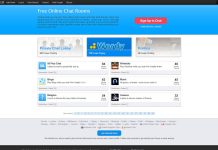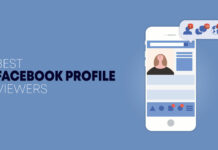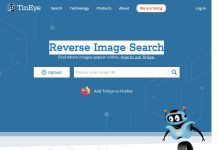
Almost every adult in the western world has at least one social media account. We interact, share news, and stay in touch with old friends. But we also give away personal information such as full name, address, schools that we attended, professional status, and marital status. Social media platforms base their business model on this data. They use it to create marketing profiles and send us offers and services according to our demographics. But, is this information publicly available? It depends, mostly on our own privacy settings. It is fairly easy to perform a background check on someone, using only the information displayed in their social media accounts.
Where to Begin?
If you want to perform a background check on someone using their social media information, the easiest way to go is to hire professional services, such as the ones offered by Check People. This will help avoid the hassle of looking into social media profiles one by one. They will offer you a report that contains sorted and organized information.
A Manual Check
If you prefer to check each site on your own, the first thing to determine is the person’s identity. Because a lot of people share a name, you will need to find out if the profile you are looking at is, indeed, the one you need. This is easy if they have a clear profile picture. If there is no picture, you will need to compare and contrast other facts, such as location or occupation. Once you have the right profile, you’ll get access to more data.
Facebook is the largest social media network in the world. With almost three billion users, who are actively sharing personal information, it’s the first one to check. Facebook has privacy settings that each user can change, so many accounts have hidden information for non-friends. Facebook’s timeline stores information chronologically, so you can also find out more about where someone was in the last years and where they worked or studied.
While on Instagram, there is less personal information, images can make your search easy, and because most people in the network want to gain followers, privacy settings are a lot more relaxed. Cross-checking what you find through Instagram with available information via Facebook may give you a clearer view of who you are checking. Instagram has the option to share what they call “stories,” in which they sometimes share more personal details.
As with Instagram, most LinkedIn profiles are public, because people use this site to develop a professional network. In order to peruse LinkedIn, you will need to create an account. Be aware of the fact that, if you don’t change your viewing status to private, people can learn when you visit their profile.
Video-Sharing Platforms
Youtube, and more recently, Tik Tok, are popular social media networks used to share videos. These accounts can also be useful when it comes to a background check. You can see more about someone’s interests, or even how they conduct themselves in complex situations. These platforms have been used to display problematic behaviors, such as racism and discrimination.
Other Options
While the three choices mentioned above are the ones that can get you more information, you can also check out profiles in professional networks. For example, Adobe offers an option called Behance, in which digital artists can show their work. There are other platforms that display information about musicians, and even freelancing platforms in which users showcase their talents in order to get temporary jobs.
Why Social Media?
A Social Media background check can give you a better understanding of how a person handles their professional and personal image. It can also help you judge their character based on how they interact with other people. A social media background check can also help you determine a person’s political views, know where they stand when it comes to controversial topics, and know more about their personal and professional networks.
Protect Yourself
Social Media has become a part of our daily lives, and while it is great to keep in touch with other people and share information, it is also a big part of our digital footprint. Keep in mind that anyone can check your social media profiles and always be mindful of what you share and how you share. Remain civil and avoid sharing too many details. Information on social media can also be used for fraud, identity theft, and even kidnapping (especially when sharing travel details or your schedule). Understand each platform’s privacy settings and use them to protect your personal information.











